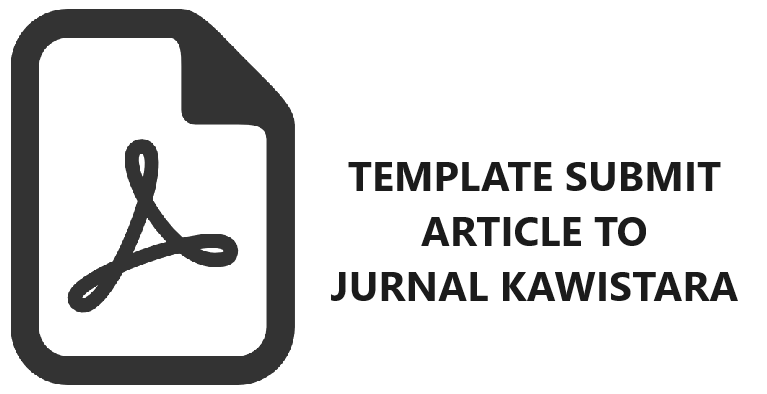DIPERLUKAN PENDEKATAN KEBIJAKAN ADAPTIF UNTUK PENGUATAN MODAL UMKM DI KABUPATEN SLEMAN
Suci Iriani Sinuraya(1*), Muhadjir Darwin(2), Yeremias T Keban(3), Sukamdi Sukamdi(4)
(1) Universitas Gadjah Mada
(2) Universitas Gadjah Mada
(3) Universitas Gadjah Mada
(4) Universitas Gadjah Mada
(*) Corresponding Author
Abstract
Keywords
Full Text:
PDFReferences
Achieng’, N. R. (2010) Factors influencing performance of micro and small enterprises: a case of Kisumu City Bus Park-Kenya. University of Nairobi, Kenya. Tersedia pada: http://erepository.uonbi.ac.ke:8080/handle/123456789/4916.
Alhusain, A. S. (2009) “Analisa Kebijakan Permodalan Dalam Mendukung Pengembangan Usaha Mikro Kecil dan Menengah (Studi Kasus Provinsi Bali dan Sulawesi Utara),” Kajian, 14(4), hal. 575–603.
Angelucci, M., Karlan, D. dan Zinman, J. (2013) Win Some Lose Some? Evidence from a Randomized Microcredit Program Placement Experiment by Compartamos Banco. Cambridge, MA. doi: 10.3386/w19119.
Asmorowati, S. (2007) “Dampak Pemberian Kredit Mikro untuk Perempuan: Analisis Pengadopsian Model Grameen Bank di Indonesia,” Masyarakat, Kebudayaan dan Politik, 20(3). Tersedia pada: http://www.journal.unair.ac.id/filerPDF/Dampak Pemberian Kredit Mikro untuk Perempuan.pdf.
Balaban, G. dan Vîntu, D. (2010) “Dynamic inconsistency and monetary policy management,” in Business Transformation through Innovation and Knowledge Management: An Academic Perspective No. 14th IBIMA Conference, hal. 1681–1691. Tersedia pada: https://mpra.ub.uni-muenchen.de/56042/.
Banerjee, A. dkk. (2015) “The Miracle of Microfinance? Evidence from a Randomized Evaluation,” American Economic Journal: Applied Economics, 7(1), hal. 22–53. doi: 10.1257/app.20130533.
Bhandari, S. B. (2010) “Ethical Dilemma of Nonprofits in the Agency Theory Framework,” Journal of Leadership, Accountability and Ethics, 8(2), hal. 33–40.
Creswell, J. W. (1998) Qualitative Inquiry and Research Design: Choosing among Five Traditions. SAGE Publications, Inc.
Danim, S. (2013) Menjadi Peneliti Kualitatif. 2 ed. Pustaka Setia.
Dumairy, Mubyarto dan Hamid, E. S. (1986) Kredit Pedesaan di Indonesia. Yogyakarta: BPFE Yogyakarta untuk P3PK UGM.
Dunn, W. N. (2003) Analisis Kebijaksanaan Publik: Kerangka Analisis & Prosedur Perumusan Masalah. Yogyakarta: Hanindita.
Eisenhardt, K. M. dan Zbaracki, M. J. (1992) “Strategic decision making,” Strategic Management Journal, 13(S2), hal. 17–37. doi: 10.1002/smj.4250130904.
Gardner, J. R. (1987) “The Ethics and Responsibilities of the Not-for-profit Manager,” Journal of Voluntary Action Research, 16(4), hal. 6–14. doi: 10.1177/089976408701600403.
Goldberg, N. (2017) A Research Agenda for the Next Wave of Graduation Programs. Tersedia pada: https://www.poverty-action.org/publication/research-agenda-next-wave-graduation-programs.
Grameen Bank (2015) What is Microfinance, Bank News. Tersedia pada: http://www.grameen-bank.net/what-is-microfinance/ (Diakses: 2 Februari 2018).
Japhta, R. dkk. (2016) UKM yang dimiliki Wanita di Indonesia: Kesempatan Emas untuk Institusi Keuangan Lokal (Studi Penelitian Pasar). Tersedia pada: http://documents.worldbank.org/curated/en/737221477568795492/pdf/109534-WP-BAHASA-SME-Indonesia-Final-Ind-PUBLIC.pdf.
Johnston, K. dan Berger, J. G. (2011) Guide to adaptive challenges and action learning, Cultivating Leadership. Tersedia pada: https://www.cultivatingleadership.co.nz/site/uploads/Adaptive-challenges-and-action-learning.pdf (Diakses: 15 Juli 2018).
KP3M Sleman (2014) Studi Eksplorasi Program Dana penguatan Modal Bagi Pelaku Usaha di Kabupaten Sleman. Sleman.
Kristanto, J. (2013) “Efektivitas Program Dana Bergulir Bagi UKM Dalam Pemberdayaan Ekonomi (Studi Pada UKM Binaan Dinas Koperasi, Kota Surabaya),” Publika, 1(2). Tersedia pada: http://jurnalmahasiswa.unesa.ac.id/index.php/publika/article/view/2578.
Sari, Y. R. dkk. (2015) Profil Bisnis Usaha Mikro, Kecil dan Menengah (UMKM). Kerjasama Lembaga Pengembangan Perbankan Indonesia dengan Bank Indonesia. Tersedia pada: http://www.bi.go.id/id/umkm/penelitian/nasional/kajian/Pages/Profil-Bisnis-UMKM.aspx.
Sarmah, G. N. dan Das, D. K. (2012) “Micro finance, Self-Hel Groups (SHGs) and the social economic development of rural people (A case study with special reference to the Lakhimpur District of Assam),” Asian Journal of Research in Business Economics and Management, 2(4), hal. 145–159.
Shodiq, D. (2015) Implementasi DPM-LUEP dalam Kebijakan Ketahanan Pangan di Kabupaten Rembang. Universitas Gadjah Mada.
Smits, J. dan Mthembu, T. (2012) Impact of microcredit on poverty in Eastern Indonesia: dealing with selection bias. Norwegian University of Life Sciences. Tersedia pada: https://brage.bibsys.no/xmlui/bitstream/handle/11250/187402/master_thesis_final_merged.pdf?sequence=1.
Tendler, J. (2002) “Small Firms, the Informal Sector, and the Devil’s Deal,” IDS Bulletin, 33(3), hal. 1–15. doi: 10.1111/j.1759-5436.2002.tb00035.x.
Venema, H. D. dan Drexhage, J. (2009) “The Need for Adaptive Policies,” in Swanson, D. dan Bhadwal, S. (ed.) Creating Adaptive Policies: A Guide for Policymaking in an Uncertain World. India: SAGE Publications, Inc.
Wahid, E. D. (2001) Evaluasi efektivitas implementasi kebijakan pendanaan usaha kecil dan menengah (UKM): Studi tentang peran pemerintah dalam pendanaan UKM di Kabupaten Gunungkidul. Universitas Gadjah Mada.
Walker, W. E., Rahman, S. A. dan Cave, J. (2001) “Adaptive policies, policy analysis, and policy-making,” European Journal of Operational Research, 128(2), hal. 282–289. doi: 10.1016/S0377-2217(00)00071-0.
Article Metrics
Refbacks
- There are currently no refbacks.
Copyright (c) 2018 Jurnal Kawistara

This work is licensed under a Creative Commons Attribution-ShareAlike 4.0 International License.
Jurnal Kawistara is published by the Graduate School, Universitas Gadjah Mada.











